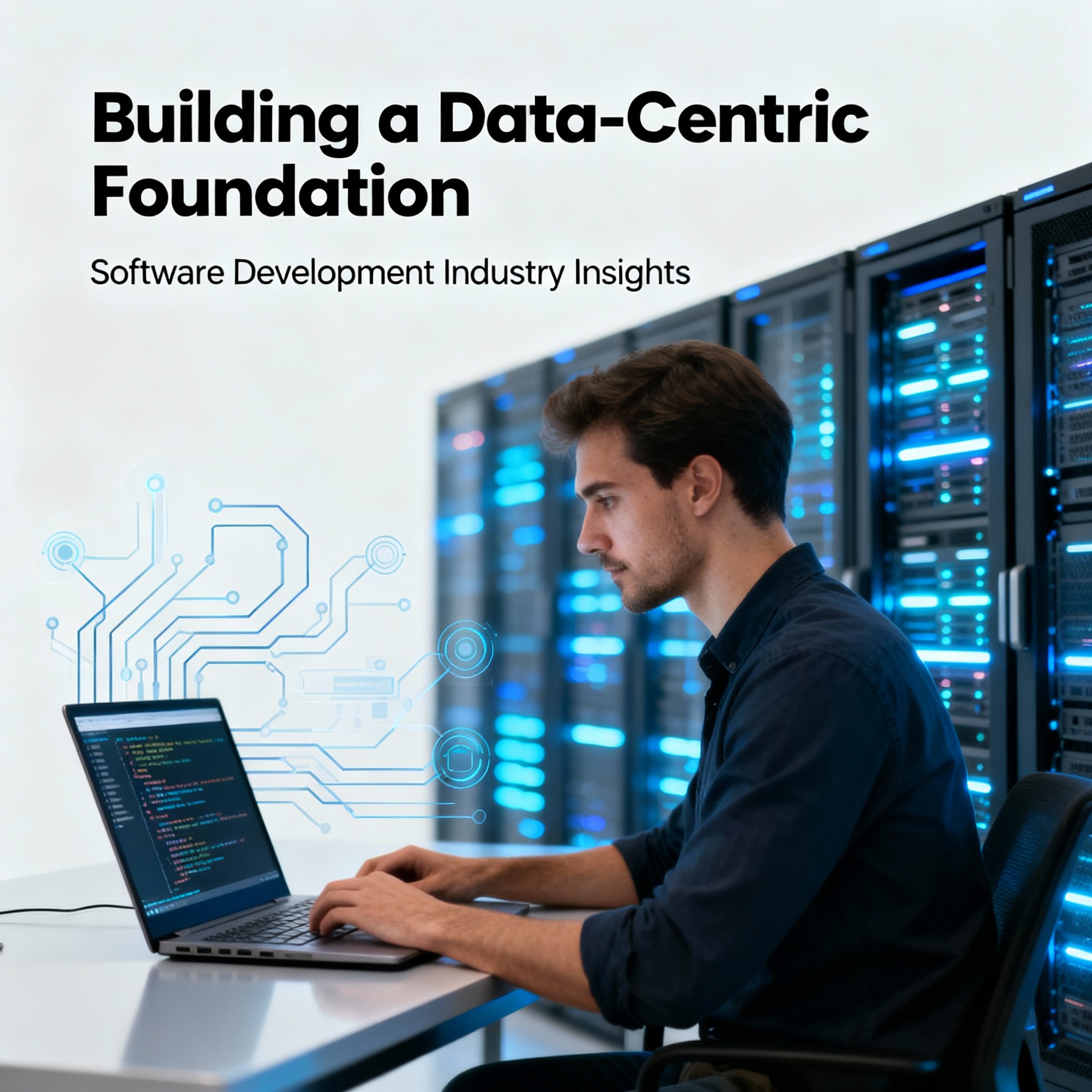
As we navigate through 2025, machine learning has transitioned from an experimental technology to a critical business capability. Enterprise organizations across industries are leveraging ML to gain competitive advantages, make more accurate predictions, and deliver hyper-personalized experiences that drive customer loyalty and revenue growth.
However, implementing machine learning successfully at enterprise scale requires more than just adopting the latest algorithms. It demands a comprehensive strategy that addresses data infrastructure, organizational readiness, ethical considerations, and continuous optimization. Here's what leading enterprises are doing right.
Building a Data-Centric Foundation
The most successful machine learning initiatives start with data—not just collecting it, but ensuring it's accurate, accessible, and properly governed. Forward-thinking enterprises are investing heavily in modern data platforms that consolidate information from disparate sources, maintain data quality through automated validation pipelines, and provide secure access to ML teams while maintaining compliance with privacy regulations.
Data democratization is another key trend. Organizations are breaking down silos and making relevant data accessible to business units through self-service analytics platforms. This empowers teams across the organization to leverage ML capabilities for their specific needs, from marketing personalization to supply chain optimization, without creating bottlenecks in centralized data science teams.
Strategic ML Use Case Selection
Not all problems are well-suited for machine learning solutions. Successful enterprises carefully evaluate potential use cases based on several criteria: availability of quality training data, potential business impact, technical feasibility, and alignment with strategic objectives. They prioritize projects that can demonstrate quick wins while building toward longer-term transformational initiatives.
Common high-value use cases in 2025 include predictive maintenance systems that reduce equipment downtime, customer churn prediction models that enable proactive retention efforts, demand forecasting algorithms that optimize inventory and pricing, fraud detection systems that identify suspicious patterns in real-time, and recommendation engines that increase customer engagement and cross-selling effectiveness.
Adopting MLOps for Production Excellence
The gap between building impressive ML models in development and deploying them successfully in production has historically been a major challenge. MLOps—the practice of applying DevOps principles to machine learning workflows—has emerged as the solution. Leading enterprises are implementing comprehensive MLOps platforms that automate model training, validation, deployment, monitoring, and retraining.
These systems ensure that ML models perform consistently in production environments, detecting performance degradation caused by data drift and automatically triggering retraining when necessary. They also provide crucial capabilities for version control, reproducibility, and compliance documentation—essential for regulated industries and enterprise governance requirements.
Balancing Innovation with Responsible AI
As ML systems increasingly influence critical business decisions, enterprises are prioritizing responsible AI practices. This includes implementing fairness testing to identify and mitigate algorithmic bias, ensuring model transparency and explainability so stakeholders understand how decisions are made, establishing clear accountability frameworks that define who's responsible for ML outcomes, and conducting regular ethical audits of AI systems and their impacts.
Companies that get responsible AI right not only avoid regulatory risks and reputational damage—they also build trust with customers and employees, creating a sustainable competitive advantage in an increasingly AI-driven marketplace.
Developing Internal ML Talent
While partnering with external AI experts like AI Foundry accelerates ML adoption, long-term success requires building internal capabilities. Leading enterprises are investing in comprehensive training programs that upskill existing employees in data science and ML engineering, establishing centers of excellence that develop best practices and provide guidance across the organization, creating career pathways that attract and retain top ML talent, and fostering a culture of experimentation where teams are encouraged to explore innovative AI applications.
Measuring ML Success Beyond Accuracy
Technical metrics like model accuracy are important, but they don't tell the complete story. Successful enterprises evaluate ML initiatives based on business outcomes: revenue impact, cost savings, customer satisfaction improvements, operational efficiency gains, and risk reduction. They establish clear KPIs before projects begin and continuously track whether ML systems are delivering expected business value.
This business-focused approach ensures ML investments remain aligned with organizational priorities and helps secure ongoing executive support and funding for AI initiatives.
Looking Ahead: The Future of Enterprise ML
As we look toward the remainder of 2025 and beyond, several trends are shaping the future of enterprise machine learning. Foundation models and transfer learning are reducing the data and compute requirements for building effective ML systems. Automated machine learning platforms are democratizing access to ML capabilities, enabling business analysts to build and deploy models without deep technical expertise. Edge ML is bringing intelligence closer to data sources, enabling real-time decision-making with reduced latency and improved privacy.
Organizations that establish strong ML foundations today—with robust data infrastructure, clear governance, responsible practices, and a culture of continuous learning—will be best positioned to capitalize on these emerging opportunities and maintain competitive advantage in an increasingly AI-driven business landscape.
At AI Foundry, we work with enterprise clients to develop and implement comprehensive machine learning strategies tailored to their unique needs, challenges, and opportunities. Our team combines deep technical expertise with practical business understanding to deliver ML solutions that drive measurable results. Contact us to discuss how machine learning can accelerate your organization's success in 2025 and beyond.